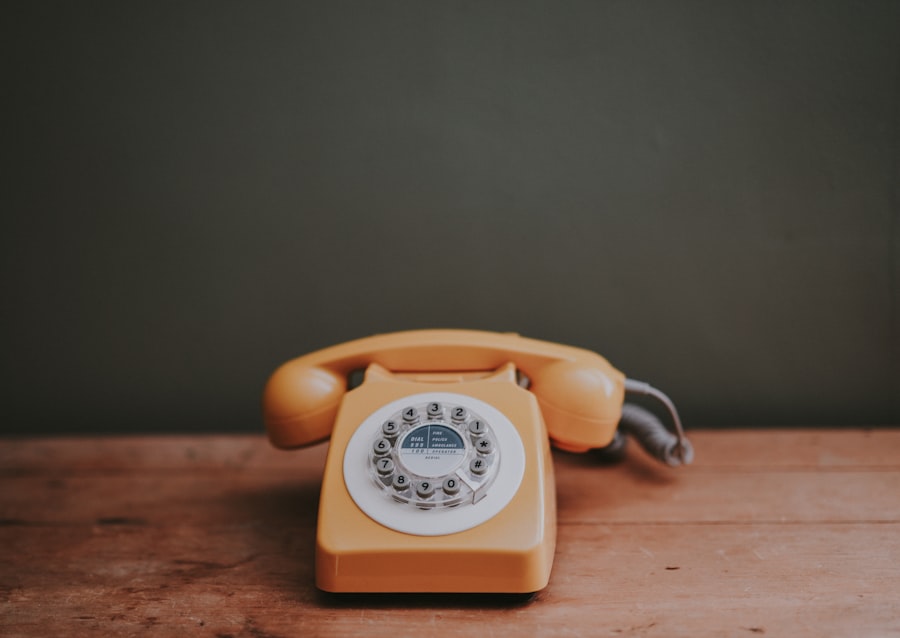Effective preparation is crucial for a successful job interview. Candidates should thoroughly research the prospective employer, including its values, mission, and organizational culture. It is equally important to understand the specific job requirements and responsibilities.
Applicants should review their own qualifications, skills, and experiences that align with the position, enabling them to effectively communicate their suitability for the role. Practicing responses to common interview questions can enhance confidence and articulation during the actual interview. Preparing thoughtful questions for the interviewer demonstrates genuine interest in the position and company.
Additionally, selecting appropriate professional attire that aligns with the company’s dress code is an important aspect of interview preparation. Comprehensive preparation allows candidates to present themselves optimally and make a positive impression on the interviewer. This approach increases the likelihood of a successful outcome in the job application process.
Key Takeaways
- Preparation is key: Research the company and role, practice common interview questions, and prepare examples of your skills and experience.
- Setting the right environment: Choose a quiet, well-lit space for your interview and ensure your background is professional and free from distractions.
- Mastering your tone and delivery: Speak clearly, confidently, and with enthusiasm to convey your interest in the role.
- Answering questions effectively: Listen carefully, provide specific examples, and be concise in your responses.
- Highlighting your skills and experience: Showcase your relevant skills and experience by providing specific examples and quantifiable achievements.
- Asking the right questions: Prepare thoughtful questions about the company and role to demonstrate your interest and engagement.
- Follow-up and thank you notes: Send a personalized thank you note within 24 hours of the interview to express your gratitude and reiterate your interest in the position.
Setting the Right Environment
Minimizing Distractions
It is also important to minimize distractions, such as turning off your phone and finding a space where you will not be interrupted.
Technical Preparation
Additionally, make sure that your technology is working properly for a virtual interview, including testing your camera, microphone, and internet connection. Furthermore, it is important to consider your body language and non-verbal cues during the interview. This includes making eye contact, sitting up straight, and using open and engaged gestures.
Mental Preparation
Your environment also includes your mindset – it’s important to approach the interview with a positive attitude and confidence in your abilities. By setting the right environment for the interview, you will be able to focus on presenting yourself effectively and engaging with the interviewer in a professional manner.
Mastering your Tone and Delivery

Mastering your tone and delivery during a job interview is essential for making a strong impression. This includes speaking clearly and confidently, using a professional tone, and avoiding filler words such as “um” and “like.” It is also important to vary your tone and inflection to keep the interviewer engaged and convey enthusiasm for the role. Additionally, it is important to listen carefully to the interviewer and respond thoughtfully to their questions.
This includes pausing before answering to gather your thoughts, and providing specific examples to support your responses. It is also important to be concise in your answers, while still providing enough detail to demonstrate your qualifications for the role. Furthermore, it is important to convey your passion for the role and the company through your tone and delivery.
This includes expressing genuine interest in the opportunity and highlighting how your skills and experiences align with the company’s needs. By mastering your tone and delivery, you will be able to effectively communicate your qualifications and make a positive impression on the interviewer.
Answering Questions Effectively
Answering questions effectively during a job interview is crucial for demonstrating your qualifications and fit for the role. This includes actively listening to the interviewer’s questions and taking a moment to gather your thoughts before responding. It is important to provide specific examples from your experiences that demonstrate your skills and accomplishments.
Additionally, it is important to structure your answers using the STAR method – Situation, Task, Action, Result – to provide a clear and concise response. This involves describing the situation or task you were faced with, the actions you took to address it, and the results of your efforts. This approach helps to provide context for your experiences and demonstrate your problem-solving abilities.
Furthermore, it is important to be honest and authentic in your responses, while still framing them in a positive light. This includes acknowledging any challenges or mistakes you have faced, and discussing what you learned from these experiences. By answering questions effectively, you will be able to showcase your qualifications and make a compelling case for why you are the best candidate for the role.
Highlighting your Skills and Experience
Highlighting your skills and experience during a job interview is essential for demonstrating your qualifications for the role. This includes discussing specific accomplishments from your previous roles that are relevant to the position you are applying for. It is important to focus on the skills that are most important for the role, such as leadership, problem-solving, or technical expertise.
Additionally, it is important to tailor your responses to highlight how your skills and experiences align with the company’s needs. This includes discussing how you can add value to the organization and contribute to its success. It is also important to provide examples of how you have successfully applied your skills in previous roles, demonstrating your ability to make an impact.
Furthermore, it is important to be confident in discussing your skills and experiences, while still being humble and open to feedback. This includes acknowledging areas where you have room for growth, and discussing how you are actively working to develop new skills. By highlighting your skills and experience effectively, you will be able to demonstrate your value as a candidate and make a compelling case for why you are the best fit for the role.
Asking the Right Questions

Asking the right questions during a job interview is crucial for demonstrating your interest in the role and gaining a better understanding of the company. This includes asking about the specific responsibilities of the role, as well as the company’s goals and expectations for the position. It is also important to inquire about the company culture, opportunities for growth and development, and what success looks like in the role.
Additionally, it is important to ask thoughtful and insightful questions that demonstrate your knowledge of the company and industry. This includes asking about recent developments or initiatives at the company, or seeking clarification on something you learned during your research. It is also important to ask about the next steps in the hiring process, showing that you are eager to move forward.
Furthermore, it is important to listen actively to the interviewer’s responses and ask follow-up questions as appropriate. This demonstrates that you are engaged in the conversation and genuinely interested in learning more about the opportunity. By asking the right questions, you will be able to gain valuable insights into the role and company, while also showcasing your enthusiasm and curiosity.
Follow-Up and Thank You Notes
Following up with a thank-you note after a job interview is an important step in the hiring process. This includes sending a personalized thank-you email or note to each person you interviewed with, expressing gratitude for their time and reiterating your interest in the role. It is important to send these notes promptly, ideally within 24 hours of the interview.
Additionally, it is important to use this opportunity to reaffirm why you are a strong fit for the role. This includes referencing specific points from the interview that highlight your qualifications and enthusiasm for the opportunity. It is also important to keep your thank-you note concise and professional, while still conveying genuine appreciation for the opportunity.
Furthermore, following up with a thank-you note can help you stand out from other candidates and leave a positive impression on the interviewer. It demonstrates professionalism, courtesy, and attention to detail – all qualities that are highly valued in potential employees. By sending a thoughtful thank-you note, you can leave a lasting impression on the interviewer and increase your chances of moving forward in the hiring process.
In conclusion, preparing for a job interview involves thorough research, practice, and thoughtful consideration of how you present yourself. By setting the right environment, mastering your tone and delivery, answering questions effectively, highlighting your skills and experience, asking thoughtful questions, and following up with thank-you notes, you can make a strong impression on potential employers and increase your chances of landing the job. With careful preparation and thoughtful execution, you can confidently navigate job interviews and showcase your qualifications with poise and professionalism.
If you’re looking to improve your remote communication skills, you might also be interested in learning about the 5 Best Video Conferencing Platforms to Try Out. This article provides valuable insights into the top video conferencing tools that can help you excel in virtual meetings and interviews. Check it out here.
FAQs
What are phone interviews?
Phone interviews are a type of job interview where the interviewer and the interviewee communicate over the phone instead of meeting in person.
Why do employers conduct phone interviews?
Employers conduct phone interviews as a way to screen candidates before inviting them for an in-person interview. It helps them to assess the candidate’s communication skills, professionalism, and qualifications.
How should I prepare for a phone interview?
To prepare for a phone interview, research the company, review the job description, and prepare answers to common interview questions. It’s also important to choose a quiet and comfortable location for the interview.
What are some tips for acing a phone interview?
Some tips for acing a phone interview include speaking clearly and confidently, listening carefully to the interviewer, and being prepared to discuss your qualifications and experiences. It’s also important to have a list of questions to ask the interviewer.
What should I do after a phone interview?
After a phone interview, it’s important to send a thank-you email to the interviewer, reiterating your interest in the position and expressing gratitude for the opportunity to interview. It’s also a good idea to follow up with the employer if you haven’t heard back within the expected timeframe.



